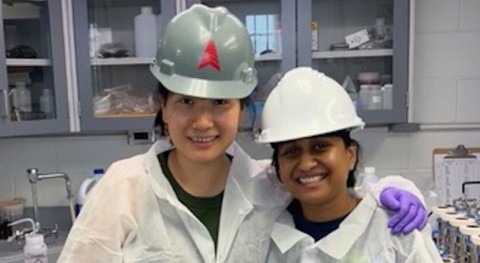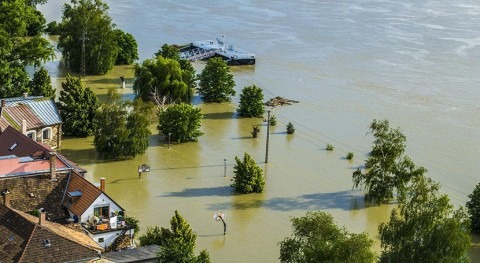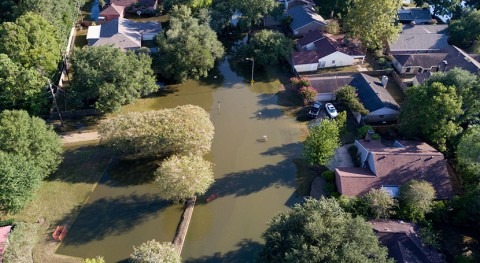A new book, " In Too Deep " (University of California Press, $29.95, 268 pages) from Rice University sociologist Rachel Tolbert Kimbro, dean of the School of Social Sciences, explores the lives of a group of mothers in a small Houston neighborhood that has been repeatedly rocked by catastrophic flooding — the 2015 Memorial Day flood, the 2016 Tax Day flood and Hurricane Harvey. It also looks at how climate change — and the catastrophic events it can cause — affects them and their children.
After floodwaters recede, these mothers face the most difficult of choices: stay in a flood-prone neighborhood and get ready for the next storm, or uproot their families from the only place that feels like home.
In her interviews with 36 mothers — all of whose homes in the Bayou Oaks neighborhood flooded during Hurricane Harvey — Kimbro found that despite the risks, almost all of them still believe it is the only place for them to live. But why?
Their decision comes down to a number of social, emotional and educational issues, Kimbro said. First, they want their kids to stay in their neighborhood school, which was carefully selected based on a number of important factors.
Kimbro found that despite the risks, almost all of them still believe it is the only place for them to live. But why?
"They're very attached to this school, and want their kids to continue attending," Kimbro said. "This is a huge reason they don't want to move. This is a group of mostly progressive, urban women who want to live in a good neighborhood that’s not in the suburbs and send their children to a school with a diverse group of students."
Kimbro said the mothers are determined to stay in their neighborhood no matter how much it costs to repair and renovate their homes — largely because of the bonds they've forged through hardship.
"People on the outside might look at these women and their situation and say, 'That doesn't make any sense. Why would you spend that money on lifting your house when you could just go buy in a different neighborhood that doesn't flood?'" Kimbro said. "I asked the women this very question, and it comes down to their community. They're very connected to these people. They lived through this really tough thing together and that has made their bonds very strong."
Kimbro said these connections are especially important because many of them are working mothers who shoulder much of the burden of child care, household labor and renovations following floods.
"The book really demonstrates how the load mothers carry can become unbearable after a disaster, as they try to protect their children from lingering harm and restore their homes and community," she said.


















